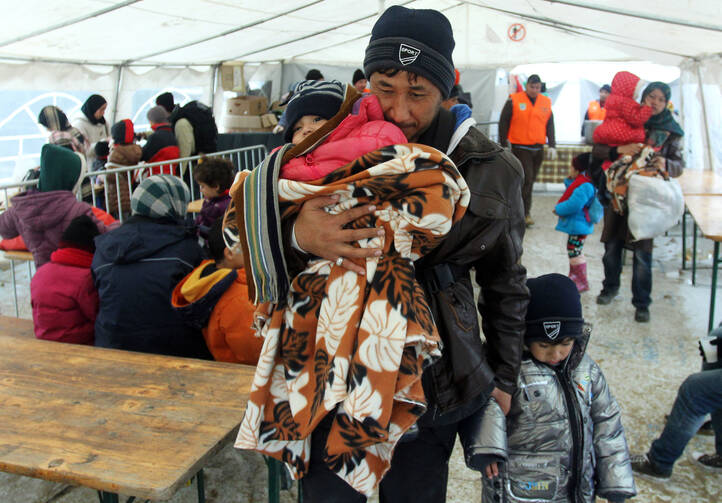The term “refusenik” was coined 40 years ago to describe persons, mostly Jews, refused exit visas from the Soviet Union. Today, the term could be applied to politicians who want to refuse persons, mostly Muslim, entrance to the United States. A majority of governors have announced their disapproval of refugee resettlement in the United States and several, including Gov. Mike Pence of Indiana, have directed state agencies responsible for providing benefits to refugees to suspend their participation in Syrian and Iraqi refugee resettlement.
Govenor Pence even tried to persuade Archbishop Joseph Tobin to divert a Syrian family scheduled for resettlement through Catholic Charities of Indianapolis. The archbishop declined, the family was resettled, and the governor agreed to provide services to qualified refugees. Nevertheless, Exodus Refugee Immigration, Inc., another non-profit refugee resettlement organization, is suing Indiana because the state’s new anti-refugee policy disrupted its plans to resettle other Syrians.
Gov. Greg Abbot of Texas did not wait to be sued. He went on the offensive and sued the federal government and the non-profit International Rescue Committee for what amounts to veto power over individual refugee resettlements. The lawsuit also challenges the Obama administration’s decision to admit refugees who would otherwise be excluded for providing material support to terrorists if the refugees pass all other security checks and the support provided was unknowing and insignificant. Both lawsuits are ongoing, but a federal district court in Texas denied a temporary restraining order that would have prevented a Syrian family’s resettlement.
These cases and others that may follow will be decided based on federal rather than state law. In Arizona v. United States (2012), the Supreme Court reaffirmed the absolute power of the federal government to regulate immigration. Various federal statutes and regulations, including the Refugee Act of 1980, provide for the resettlement of refugees throughout the United States. These laws authorize federal funding to states that voluntarily provide services to newly resettled refugees and require federal authorities to “consult regularly (not less often than quarterly) with state and local governments and private nonprofit voluntary agencies concerning the sponsorship process and the intended distribution of refugees…before their placement in those States and localities.”
States may opt out of their participation after giving adequate notice, but they are not empowered to prevent the relocation of refugees within their borders. The Refugee Act’s prior consultation language is a planning tool that assures adequate services are in place when refugees arrive; it does not grant states refusal powers.
When it passed the Refugee Act, Congress declared, “it is the historic policy of the United States to respond to the urgent needs of persons subject to persecution in their homelands…” Congress may decide to change that policy as the House voted to do when it passed a bill that would effectively block all refugees from Syria and Iraq, but that is the prerogative of the federal rather than state government.








